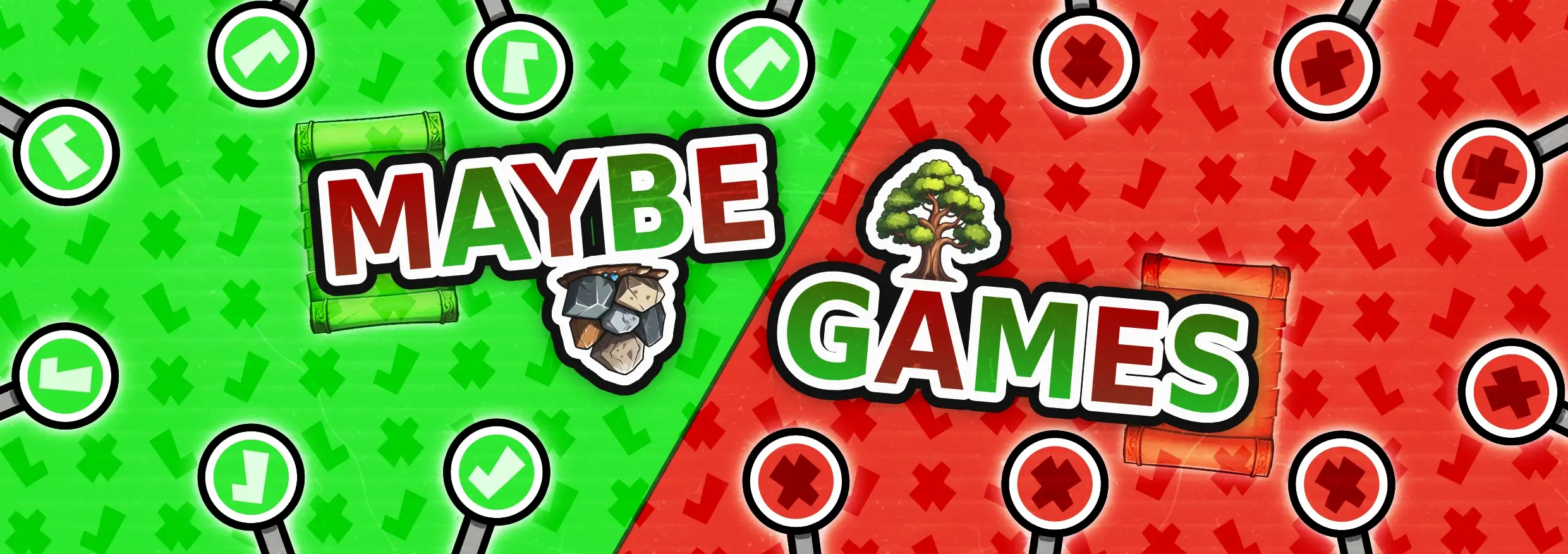
Maybe Games
Maybe Games is a collection of simple family games themed around the same core mechanic. Something I call the “Maybe Mechanic”: each turn, everyone simultaneously votes (YES/NO) on a set of cards, and depending on whether the vote fails or succeeds, people are punished or rewarded. Extremely simple and inutitive, with fast turns thanks to simultaneous voting. But I was still able to invent many different rulesets around this core, leading to wildly different game experiences.
The project contains these 3 games (and will probably be extended by 1 or 2 more games):
- Maybe Movies: pitch movie ideas that others want to greenlight, but will profit you the most!
- Maybe Missions: propose risky spy missions and hope the others join in to make it happen, or suffer the consequences of getting caught!
- Maybe Minister: propose changes to your country that will pass through parliament (thanks to a majority vote), but will give your faction the most resources and voters in the long run!
Visit the official project page for more information and any updates.
What’s special?
For this project, I tried an approach I elegantly call “try all the permutations”. It means that I identify all the major parts of my core rules, and then try every combination of them for a different game.
For example, these games have two types of material: Votes (small; yes/no) and Cards (bigger; depends on game). This material could be in your hand or on the table. This material could be used for playing or used for scoring.
This already gives many different permutations (or “combinations”) of these elements.
- Votes + Cards in hand; Votes + Cards used for playing.
- Votes in hand, Cards on table; Votes + Cards used for playing.
- Votes in hand, Cards on table; Votes used for playing, Cards used for scoring.
- And so forth …
I wrote down all of them and tried to make all of them work.
Some just didn’t work. For example, Votes + Cards in hand is really messy. Two different types of material? With different card sizes? That’s just too impractical.
The ones that did work ended up being the collection of games you see now.
I found this incredibly useful. It gives restrictions that help narrow down your ideas and be more creative, while ensuring each game is truly unique (because the combination of rules at its core is expressly different from all the others). After making the Maybe Games, I already used this technique for other “collections” of related games.
Besides that,
- I simulated all the games ( = ask the computer to play 100,000 rounds, give me the results), which helped balance and finetune the rules before even playing it once with others.
- The games are another step forward in terms of visuals and polish, I think.
- Again and again, I keep learning how useful it is to have simultaneous turns around a very simple core mechanic. It makes games incredibly fast to play, nobody has any boring downtime, and I can add complexity/fun rules on top of that core without overwhelming anyone.
